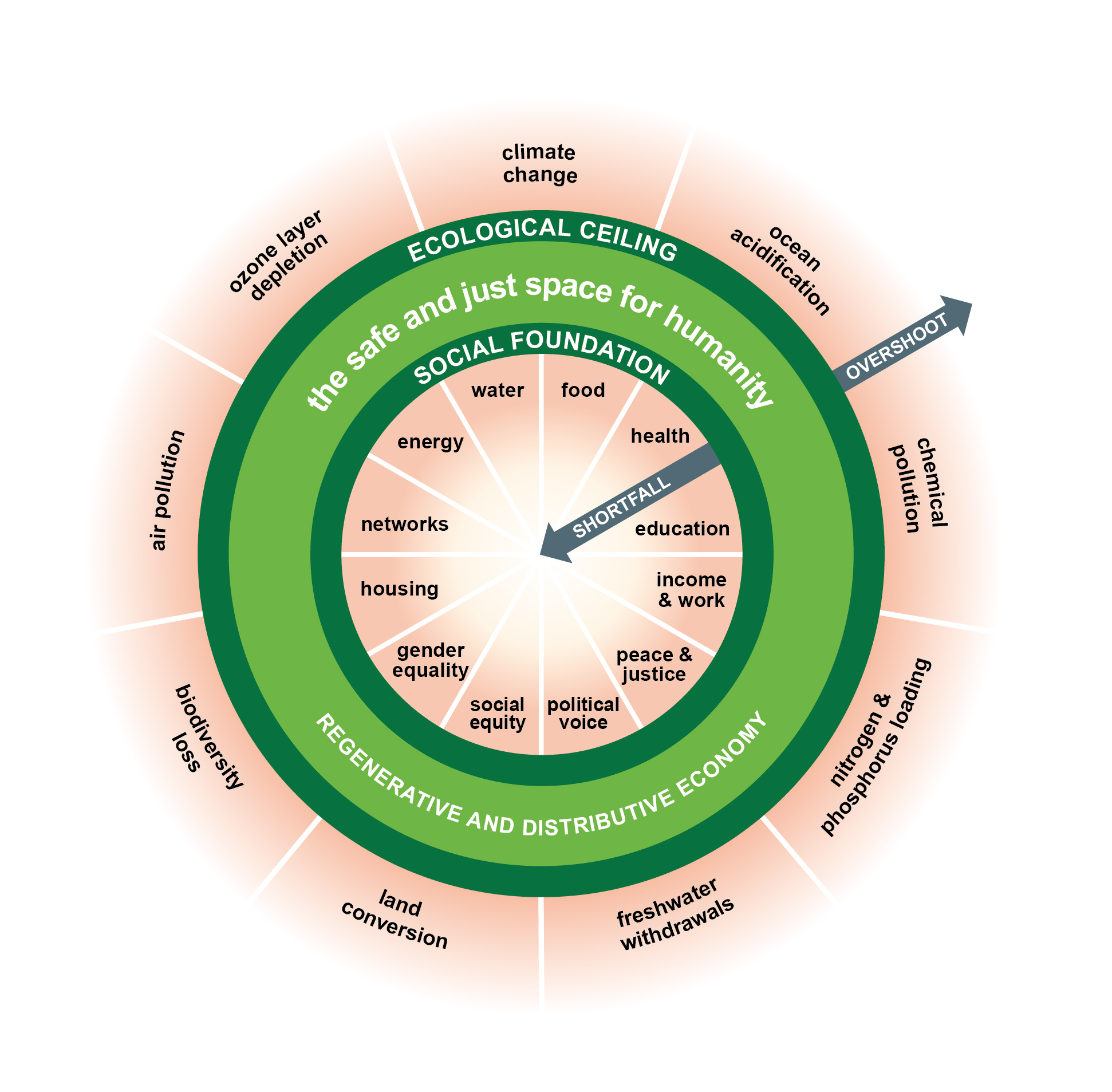Entrepreneurship and the Sustainable Development Goals
By Sarah Kollnig @ Montanuniversität Leoben | 2 May 2023
In 2015, the 17 Sustainable Development Goals (SDGs) were adopted by the United Nations as a compass for achieving sustainable development for all and within ecological limits by 2030. Recent studies show that we are far from achieving these goals, particularly regarding the goals related to social justice – such as SDG 1 “no poverty”, SDG 5 “gender equality”, or SDG 10 “reduced inequalities”.
In this blog post, I want to introduce some alternative ways of thinking about economics and, thus, entrepreneurship. This is because it can be argued that, in order to achieve the SDGs, the notion of economic growth has to be questioned. This concerns economic growth as the precondition for reaching the SDGs, as well as economic growth as a goal in itself (as in SDG 8 “decent work and economic growth”).
This way of thinking was popularized by the 2017 book “Doughnut Economics” by Oxford economist Kate Raworth. She conceptualizes the preconditions and limits for sustainable development in the shape of a doughnut: The inner ring of the doughnut is made up by basic social requirements – we need to provide a decent living for everyone, from the availability of drinking water over access to education to gender equality. The outer ring of the doughnut stands for the ecological limits of our planet that we cannot overstep – from climate change over ocean acidification to biodiversity loss. The inner and outer ring delineate the doughnut – the “safe and just space for humanity”.
In order to arrive at Doughnut Economics, Raworth suggests changing the fundamental assumptions of economics. An essential change is the departure from GDP growth as the main goal – towards aiming at human and ecological thriving and wellbeing. As she formulates it, we have to go from being “growth-addicted” to being “growth-agnostic”.
But what does this mean for entrepreneurs? I would like to take up two essential avenues towards operating within Doughnut Economics. One avenue is the Social Solidarity Economy as developed by Esteves and colleagues, and the other a Not-For-Profit World as suggested by Hinton and colleagues.
The Social Solidarity Economy builds upon community-led initiatives, which go beyond concerns with economic growth. These initiatives collectively manage shared resources, also called “commons”. This results in resilient systems able to address the complexity of sustainability and, thus, also going towards fulfilling the SDGs. While mainstream entrepreneurs would search for trade-offs between the different sustainability aspects, community-led initiatives tend to develop integrative approaches to sustainability. Examples are the common management of resources such as water or land or initiatives re-integrating the different steps of the food supply chain.
Similarly, Not-For-Profit (NFP) enterprises have socio-ecological aims rather than working for profit. NFPs do not depend on charity, but create their own revenues and re-invest profits to the benefit of their members. Thus, wealth circulates rather than being accumulated, which also reinforces community ties. NFPs can for instance be organized as cooperatives, in many areas from agriculture to banking.
In the end – what kind of enterprise would you found to get closer to achieving the SDGs?
Image:
Environmental doughnut infographic, published by DoughnutEconomics, in 2017, on Wikimedia Commons
References:
Esteves, Ana Margarida, Genus, Audley, Henfrey, Thomas, Penha-Lopes, Gil, East, May (2021). Sustainable Entrepreneurship and the Sustainable Development Goals: Community-led initiatives, the social solidarity economy and commons ecologies. Business Strategy and the Environment, vol. 30, pp. 1423-1435
Hinton, Jennifer & Maclurcan, Donnie (2017). A not-for-profit world beyond capitalism and economic growth? ephemera theory and politics in organization, vol. 17, no. 1, pp. 147-166
Raworth, Kate (2017). Doughnut Economics. Seven Ways to Think Like a 21st-Century Economist. Vermont: Chelsea Green Publishing



